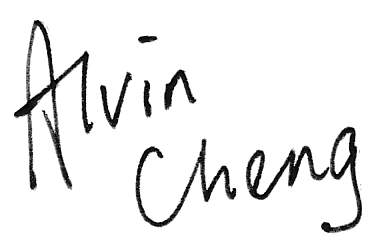My own version of the short history of the internet
▲ Internet anytime anywhere, sketched on the transport in London
When the internet was introduced in around 1990s in my home country, there were news about people who were cheated when meeting online, so that many people were reluctant to use the internet because they regarded cyber world as virtual, not real.
Late 1990s: Website design
Now everyone goes online thanks to the emergence of Facebook and iPhone. Before that, before we wanted to share our thoughts, we had to learn HTML or use Adobe Dreamweaver to design our website first.
The common service providers was from Geocities (under Yahoo), as well as locals like Uhome.net in Hong Kong. The free services usually have limitations of storage size, like 38MB. Yes so small!
There is a guestbook for each website for audiences to leave messages in order to appreciate the webmaster — the one who designed and maintained the website. To enhance more human interaction one to one, email was the only way.
2000s: Xanga and blogs
The introduction of weblogs, or blogs, made people rely less on code learning (CSS) unless they wanted to have more freedom to decorate their sites. Xanga was one of the service providers which focused on friends’ interaction through online personal journals with comments on each update, when were then replaced by posts on Facebook and stories on Snapchat and Instagram. There are other free blog service providers like Blogger (which was acquired by Google), Sina from Hong Kong and China, as well as Pixnet from Taiwan, which were suitable for any kind of personal sharing say travel, personal life, social issues and any other forms of sharing, resulting in public spheres enhancing discussions.
Although Xanga and blogs made things easier, not everyone thought of having one. Some people dared to share their real stories online (without real identity) to share what they were struggling in life and work because the people they knew like friends and family members would rarely see them, and more importantly mutual (emotional) support among bloggers, who were living in different worlds, did occur since they would never have any conflict of interests. Some of them might stay keeping in touch in the online sphere, while some had finally seen each other to become friends in reality.
From late 2000s: commercialisation and popularity
Things started changing due to the commercialisation and popularity of the internet. Starting from some bloggers who were invited by publishers to publish books for sales and try new products or services for free to help companies write good reviews to help marketing, to everyone’s ability to become creators.
The emergence of social media does play a vital role in the above development. Facebook, Instagram and YouTube not only replace blogs but also push commercialisation even further, because sharing has been made easier so that everyone including our parents can have at least one account. The people we know can now watch us, and we are less reluctant to show our real identity with our real names and faces.
We are real, but not real in terms of our contents and behaviours because of the incentives of income (by providing fake news and so-called advices which successfully seek a lot of attention) and more reluctant to share our true self (your parents are watching!). On the other hand, due to the nature of fast spreading and mass reaching, some of us make use of the social media to manipulate others for our own good. While we normally show real identity due to network effects, we can still create fake accounts secretly to do what we want.
In short, there are more cyber bullying, gaslighting and all forms of psychological manipulation compared to the age of blogging, in which users were much kinder to support each other.
To be fair, we already have gossip in our everyday life but it has been extended to online for 24/7/365.
Can we go back to the good old days?
For me who started using the internet from 1990s with personal websites, blogs and social media accounts, I do miss the good old days before the emergence of social media. As we rarely review the history of the internet, and most of us didn’t have computers in the 20th century, I am here to share my experiences on my website, so that it can be searched by everyone at least in decades.
I did read books which call for people to quit social media, which, in an attempt to go back to the good old days, doesn’t get rid of the binary, social media way of thinking. Simply leaving something only drives click bait and doesn’t help. Audiences who get lost on social media may find it much more painful and frustrating, and end up disconnecting meaningful human connections as well as shutting down all kinds of opportunities in life.
The sad development of the internet doesn’t imply we don’t need to be kind online. Indeed there are good people while we can do better. Can we consider not to be “big brothers” stalking others? Can we think less of generating money on the internet? Can we have more effective communication with people on any platform of social media instead of ghosting others? Can we give up stealing others nice works and even attacking others by creating fake accounts? The future is up to us.

